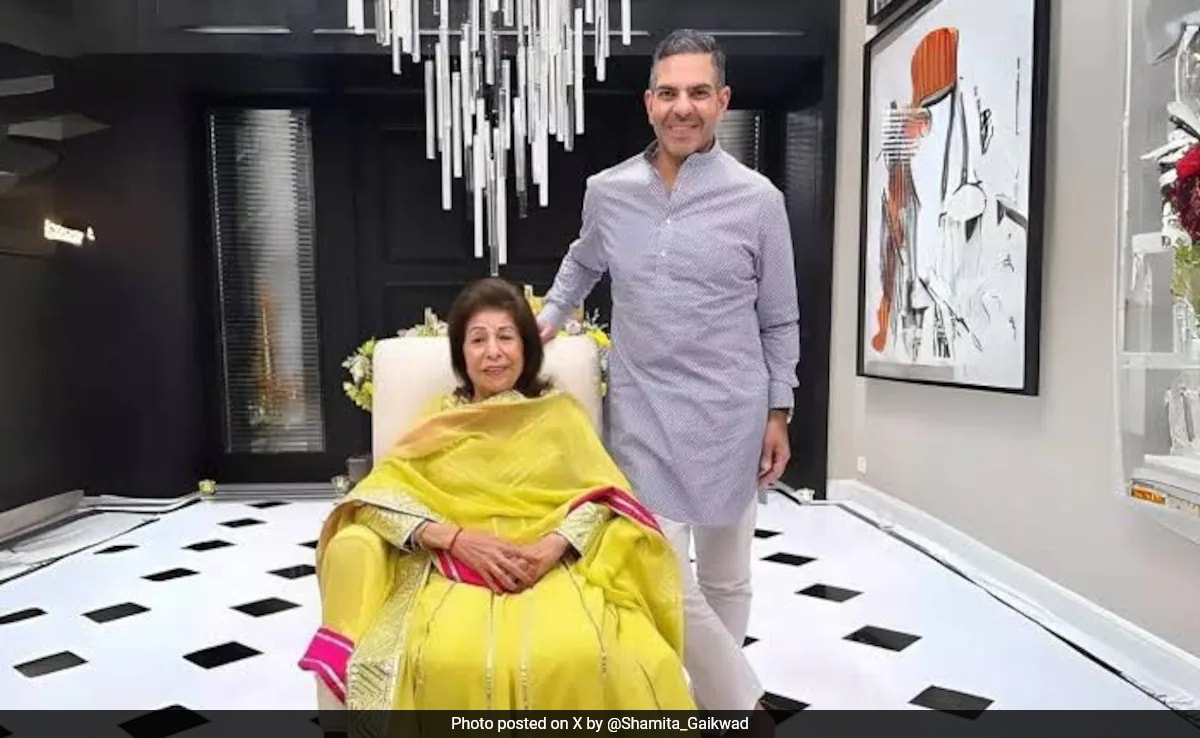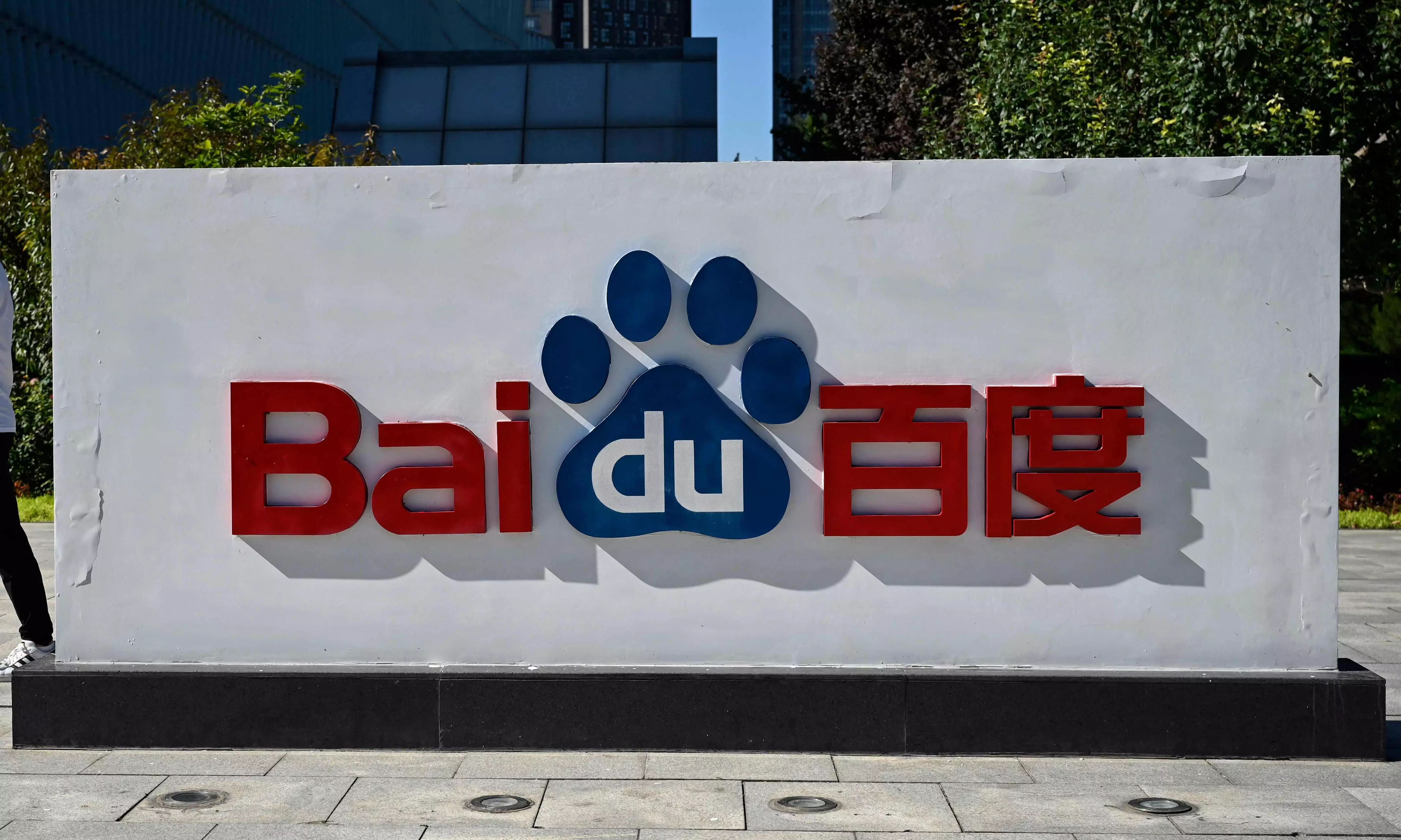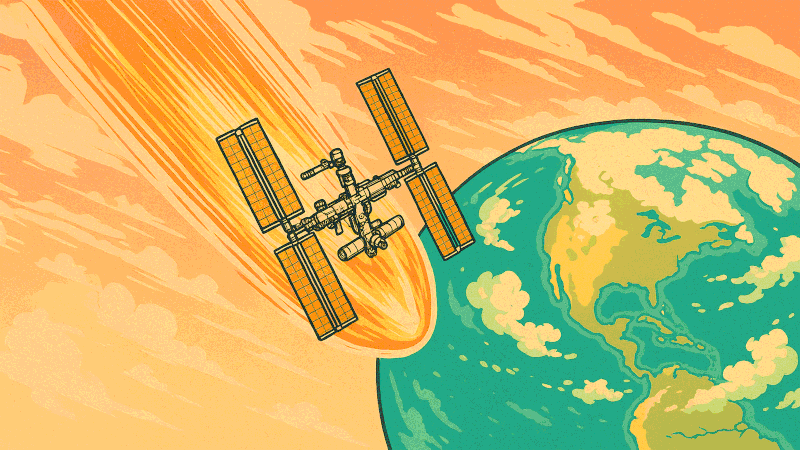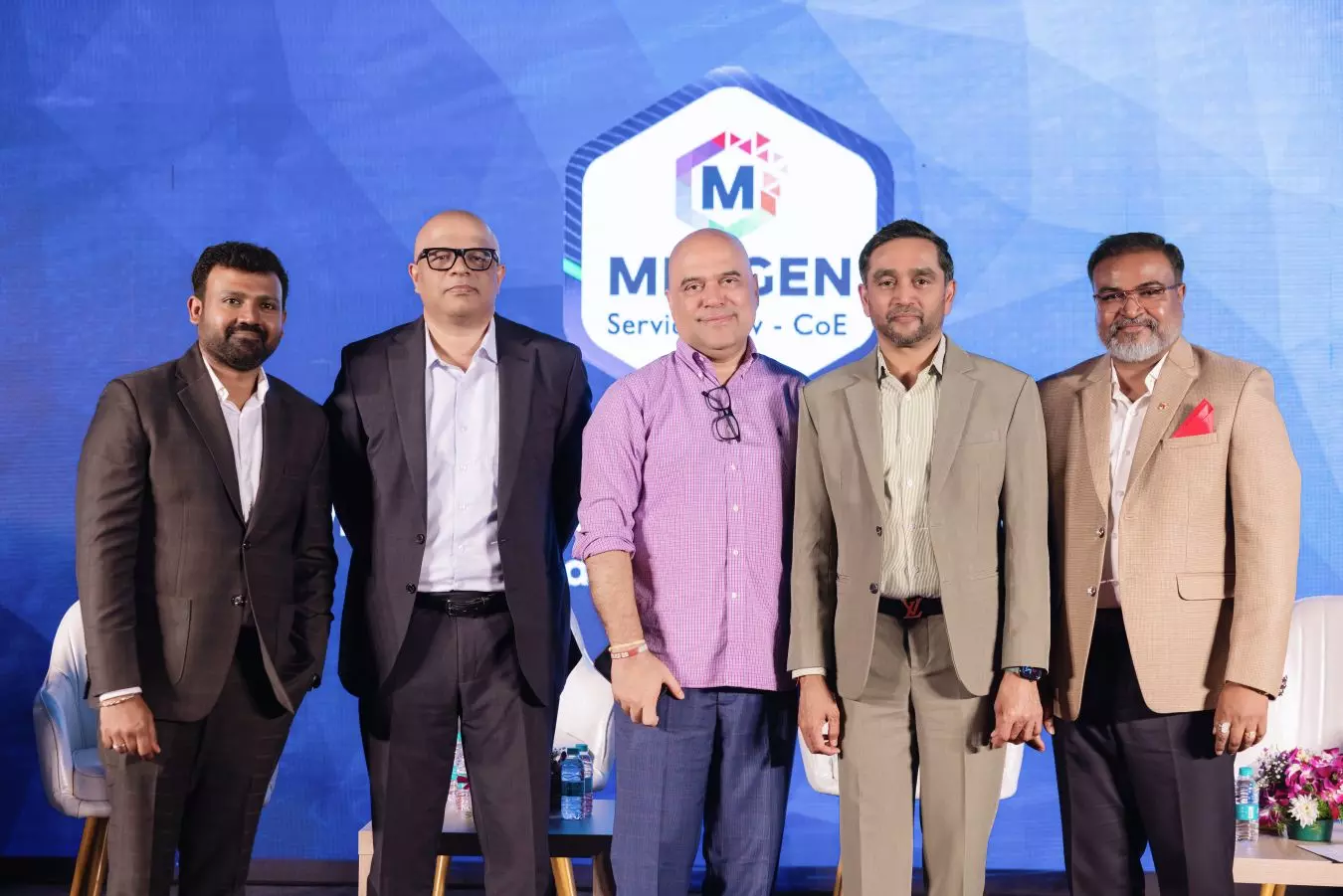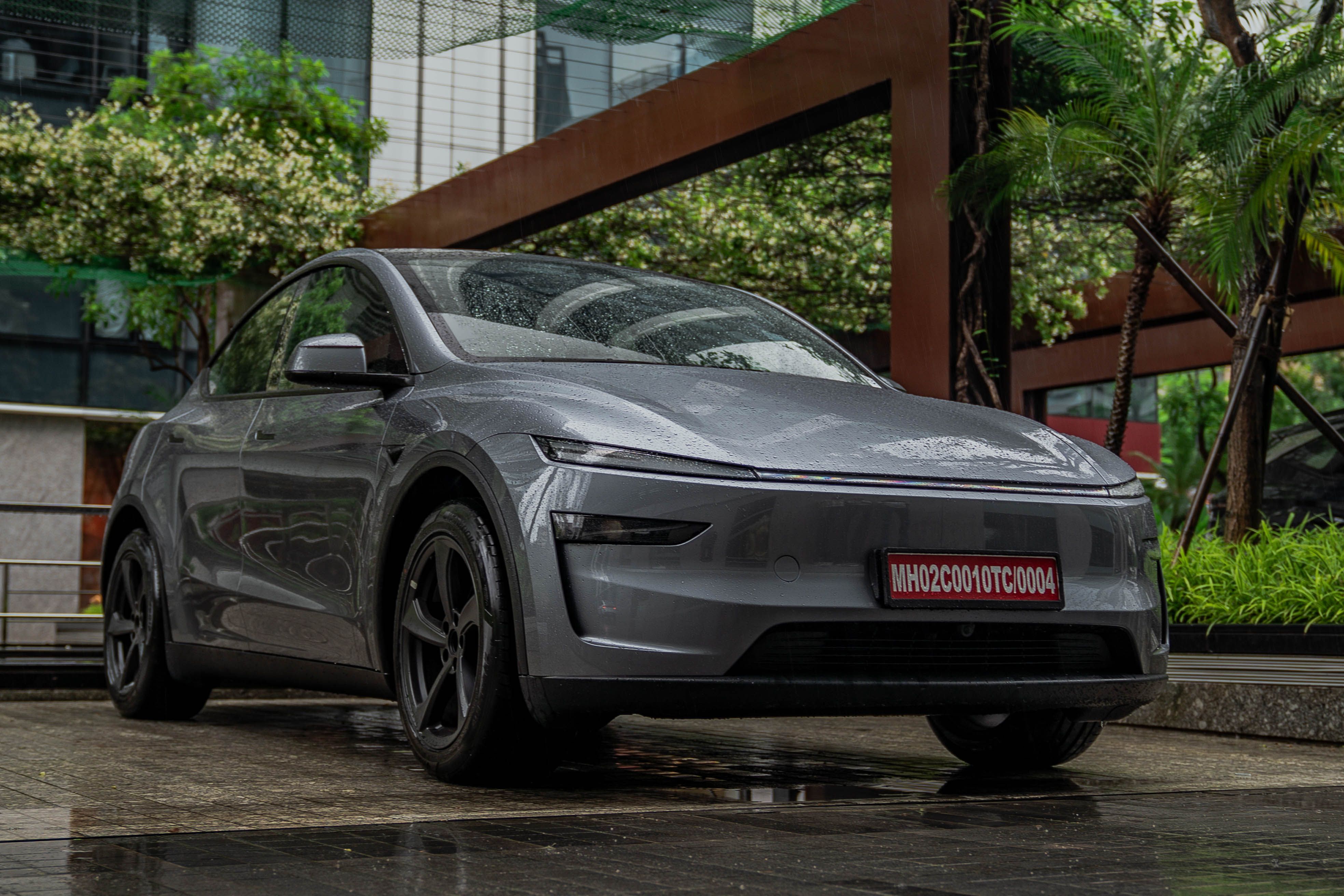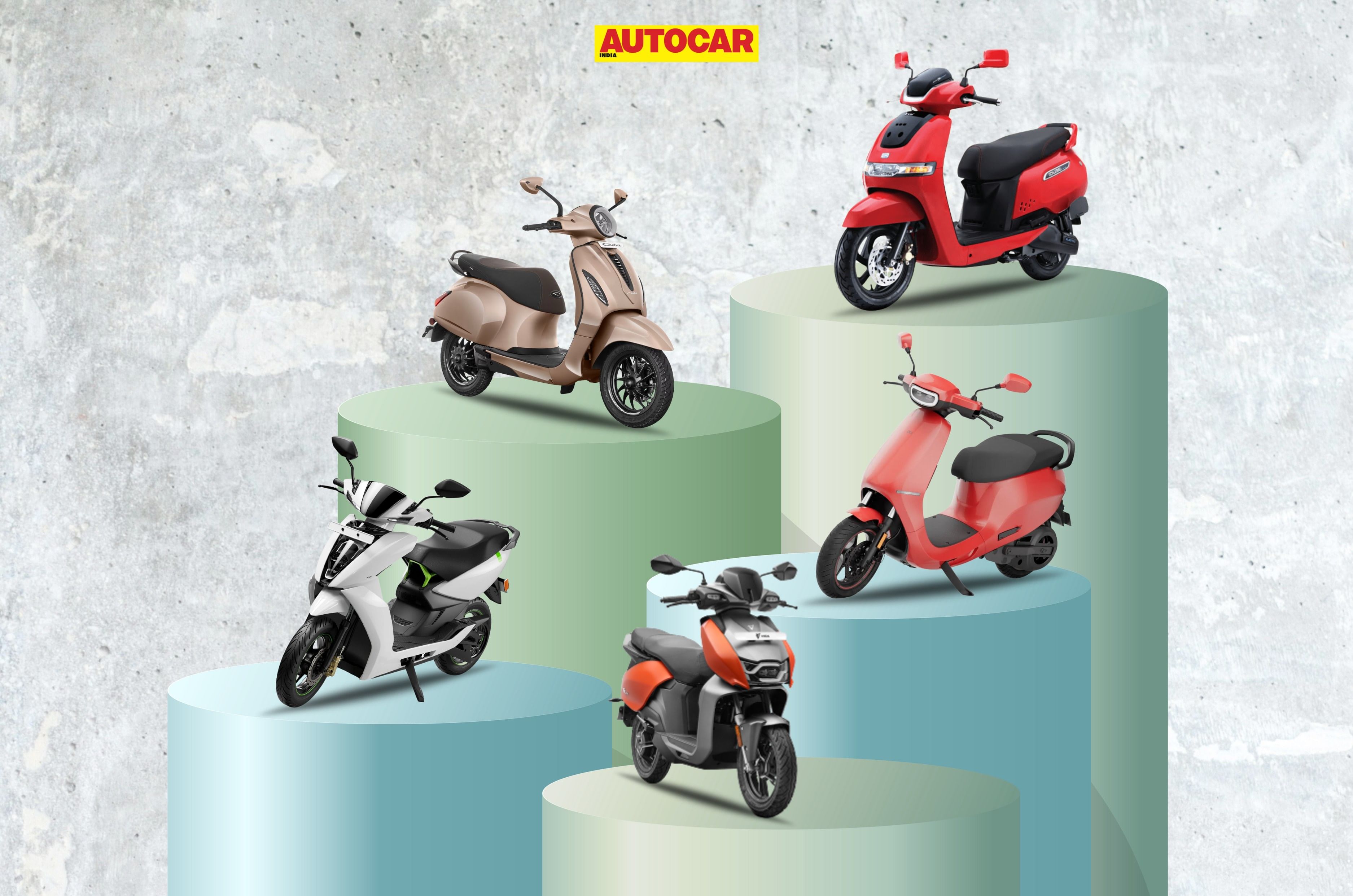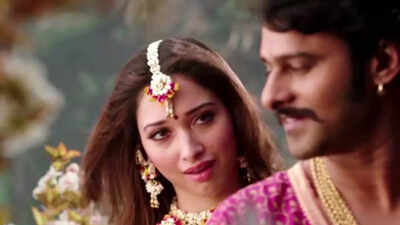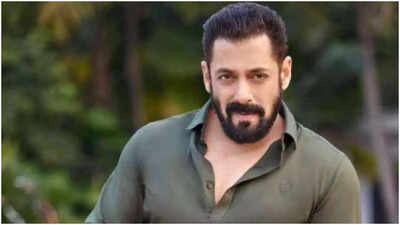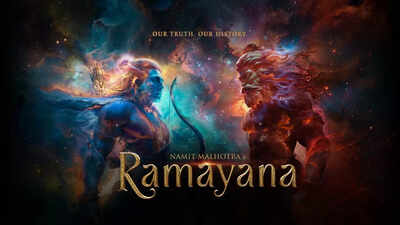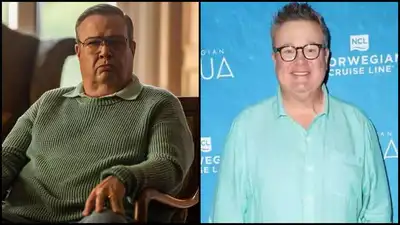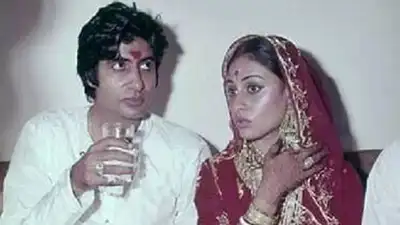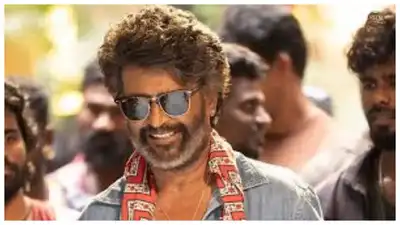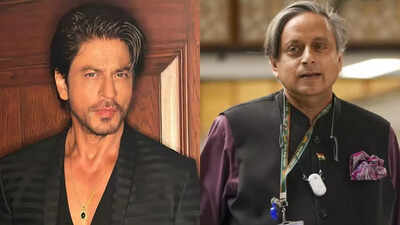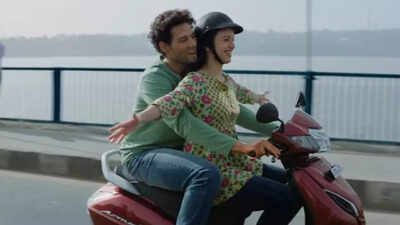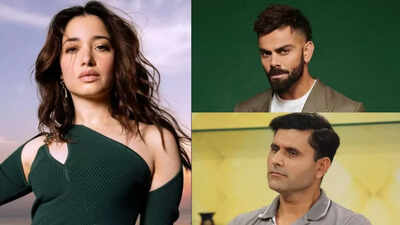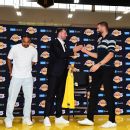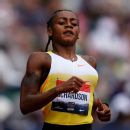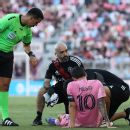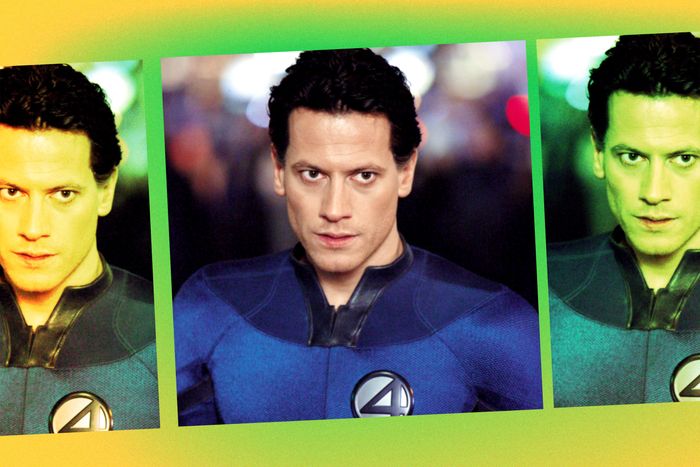
The original Reed Richards shares memories of launching a franchise with his late costar, Julian McMahon.
Photo-Illustration: Vulture; Photo: Everett Collection
There’s still a sense of glee in Ioan Gruffudd’s voice when he discusses his time as the big screen’s original Mister Fantastic. That’s the exact type of energy he brought to his performance as genius scientist Reed Richards in 2005’s Fantastic Four. Subsequent versions of the iconic Marvel character, including Pedro Pascal in the recently-released The Fantastic Four: First Steps, seem to carry the weight of the world on their shoulders. But Gruffudd and his costars indulged in lightness and fun, and even if critics at the time weren’t sold on the film, Gruffudd still takes pride in launching such an iconic franchise.
In the early 2000s, the Welsh actor began breaking through in Hollywood, starring in 102 Dalmatians, Black Hawk Down, and King Arthur. His rise coincided with the long-awaited green light of the second live-action adaptation of Stan Lee and Jack Kirby’s Fantastic Four comic series, a project decades in the making. (Director Roger Corman’s B-movie Fantastic Four was the first, but never got released.) Having seen what 20th Century Fox accomplished with 2000’s X-Men, Gruffudd became intrigued by the idea of starring in a superhero film. Months of auditioning booked him the part, despite his nerves about playing an iconic American character.
Directed by Barbershop’s Tim Story, Fantastic Four finds Reed, Sue Storm (Jessica Alba), Johnny Storm (Chris Evans), Ben Grimm (Michael Chiklis), and Victor Von Doom (Julian McMahon) traveling to space for research, only for a cosmic storm to send them back to Earth endowed with superpowers. Reed could now stretch like rubber, allowing him to save people from falling off a bridge and impress women with his dancing skills.
Over two films, Reed faced off against Victor, the pompous and vengeful CEO of Von Doom Industries. The duo’s romantic battle over Sue evolves into something much bigger when Victor begins mutating into organic metal that produces electricity, taking on the villainous identity of Doctor Doom. Sadly, earlier this month, McMahon died at the age of 56.
“You saw the envy and jealousy that Reed had towards Victor, and that there had been a friendship, so that sense of betrayal and devastation was an interesting aspect to play,” Gruffudd says. “Julian was somebody that loved his work, loved being at work, loved life, and was larger than life. As much as there was a great dynamic for us as characters when we were working, there was a wonderful dynamic on set because he just wanted to enjoy every moment. So that was quite a blow to hear that news. He’s such a big part of this franchise and the success of the movies. To meet him, you’d never think that he’d become this sort of character, but he had that ability as an actor to turn into a destructive force. You remember great performances from movies of this nature, like Gene Hackman in the original Superman, and that’s the kind of flair and panache that Julian brought to this.”
Fantastic Four and its 2007 sequel, Fantastic Four: Rise of the Silver Surfer, both grossed more than $300 million. But the planned trilogy was never completed, and a year after Silver Surfer, the MCU was officially born with Iron Man. Ahead of the return of the Fantastic Four in the reboot First Steps, Gruffudd stretched his memory back to discuss the legacy of the characters.
When you reflect on the Fantastic Four experience, where does your mind go first?
Just the pure excitement. The process of getting the role was long: several auditions, meetings, screen tests. This lasted over a period of months, and it’s understandable, because you’re mixing and matching, looking for a collective that would blend together, not just one character. Plus you’re trying to cast actors for such beloved figures, so there was pressure to make sure that they got it right. It was quite an exhilarating sensation, and then after that exhilaration, it dawns on you, oh right, I have to represent this iconic character. There was pressure that I personally felt because I’m not American, and so a lot of effort and energy went into wanting to be completely believable as this iconic American hero.
Growing up in Wales, what was your relationship with comics? Were you a newbie when the film came your way?
Growing up in the U.K., there were comics, but they weren’t of this superhero nature, so I was pretty new to it. And delving into this world, there was that sense of wanting to do the character and comic books justice because they are so beloved by so many people, as I have continually discovered to this day. It was quite the eye-opener for me.
What was it that initially drew you to throwing your name in the mix for Reed?
As an actor, you have to be self-aware of your strengths and what you are capable of doing. I wasn’t given the entire script at the time, but there was a sense that this was somebody honorable and noble, and clearly a bookish character who was passionate about science and wanted to do good for the world. And I think possibly a little naïve at the beginning when he discovered his powers and the impact that would have. I realized that I could represent these elements that are necessary to bring him to life. The studio had great success with X-Men, so there was an awareness that you were heading into that sort of universe and that this was going to be a global, far-reaching movie and hopefully a franchise. All the excitement that comes along with that is sort of overwhelming.
It sounds like you were likely paired with Chris, Michael, and Jessica during some of these screen tests, so how quickly did you all bond together and begin developing the chemistry that was important to this story about four people?
It’s essentially about a family, isn’t it? There was a great belief that we needed to represent that friendship, camaraderie, bickering. And we had that innately as actors when we got together. We all had our own responsibility, but then an understanding that this was a team, this was the Fantastic Four — we are one.
The superhero era on the big screen was just getting started, and Iron Man and the MCU were still a few years away. And Fantastic Four was definitely lighter in tone than most of the superhero films of the time. Was there a freedom in arriving so early in the comic-book takeover?
We couldn’t have known what the future held for Marvel and the appetite for these films and the ability to make them as technology progresses. For us, we certainly felt that we were being true to the comic. The comics aren’t as dark and violent as Blade and X-Men; they have a lighter, family feel. We believed we were a true representation of what was in Stan Lee and Jack Kirby’s minds when they created it. And what’s wonderful about the movie is it still resonates today amongst the tens of movies that are now in the Marvel Universe, and it holds up emotionally and technically.
Speaking of the visual effects, how did you handle filming the various sequences where your arms and body are stretching?
We had terrific sets built, and that’s always a thrill for me as an actor when you have a tangible set behind you, like their home and office at the top of the Baxter Building, that was an enormous two-tiered set. And the Fantasticar was a real build, we were in the car on a gimbal, with wind machines, and so at least we had that aspect of it. Technology has come such a long way in 20 years, and there was a lot of waiting around while these things were set up. I get asked how we did the part where I was frozen, and there was obviously white makeup to get that effect, but they sprayed me with candle wax so I had that tangible look on my skin.
I had to use my imagination for the stretching. I choreographed very, very specifically with certain camera movements. I was often standing with my arm behind my back because it was easier for them to digitally build the arm from the suit than it was to erase my hand. So there were some comical moments where you were thinking to yourself that this is the strangest thing ever, like, I didn’t imagine studying this at drama school. But you have to draw on your imagination and dig deep, more than anything, because you are imagining your arm having stretched to another building across the street and grabbed something, and there’s a lot of fun to that. It was exhausting, in the best possible sense, as if you were being a child again: Okay, this is play time now, and you just have to go for it.
I discovered while preparing for this that there’s a deleted scene where Reed briefly turns into Hugh Jackman’s Wolverine to impress Sue. Were you bummed to learn that didn’t make the final cut?
I don’t know why that didn’t make it into the film. Paying homage to the great Hugh Jackman was quite a thrill because I absolutely love him as an actor and his Wolverine. I’m glad that it has a chance to exist somewhere. That was a reshoot, and I was in Vancouver on a soundstage and Jessica was in New York, so we weren’t actually together, but we look perfectly in sync.
Technically, you can brag that you’ve played both Mister Fantastic and Wolverine.
[Laughs.] For a brief second, yes. That’s a good pub-quiz question.
The sequel was released just two years after Fantastic Four, but I believe you were all signed on for a third film that never happened. Were you surprised that you didn’t get the chance to complete the planned trilogy?
The mind-set was that we were going to do three, and I think the second movie was equally successful as the first and equally enjoyable for the fans. I particularly loved working with Doug Jones [as the Silver Surfer] on that movie, who’s just a terrific artist and an expert in the field of movement. If you want to witness somebody bringing a character to life physically, he’s just untouchable. So there was definitely that sort of momentum, and the plan was to do three movies, but these decisions are beyond my control.
How were you feeling in the aftermath of your run as Reed ending? You previously talked about losing some confidence and even seeking therapy. Why do you feel like that grieving process was such a difficult one?
As an actor, you almost grieve every part that you’ve played, and this was no different. This was a massive stepping stone in my career, and because this was two movies over several years, the character becomes part of you. So I think the grieving process is that you’ve enjoyed the character so much and you’re not getting to play them again.
Your Fantastic Four was actually back in the news last year when Chris Evans reprised his role as Johnny Storm in Deadpool & Wolverine. Did you get some joy and satisfaction out of that? The film ended up being a bit of a tribute to that era of 20th Century Fox Marvel projects.
I did have a warm feeling come across me because you reminisce about the fun that we had. I absolutely loved working with him. I just remember laughing with Chris every single day on set, almost like giddy teenagers. It was a true delight to see Chris reprising Johnny, and that’s such an iconic sequence in that film. I was laughing out loud and just overjoyed by it, and it’s a beautiful homage to what Chris did as Johnny. Yes, he is beloved as Captain America, but he’s also beloved as Johnny Storm.
When Chris was first cast as Captain America, were you like, Wait, how can you be Johnny Storm and Captain America?
It made sense to me. I mean, I can imagine there were fans of comics that were a bit jarred by the fact. But, when you think about it, he’s absolutely perfect for the role — and he played it perfectly. Physically, Chris worked as Captain America, and he just represents that part, and when you went to see the movie, you go, Yep, there’s the reason why he was cast.
As the first big-screen Mister Fantastic, what is your relationship to the other versions? Do you root for the new Fantastic Fours?
These stories were first told in the ‘60s, and they resonated as comic books and as movies when we did them, and I’m sure this one will resonate again. These things are generational; it’s the reason we go to see Hamlet time and time again.
I’m incredibly proud to be part of such a beautiful franchise because it has touched my life in a very profound way. The people I’ve had the opportunity to meet over the years, if only I could describe their passion and how the film has affected them in real ways that live with them forever.
I feel a great sense of pride that I got to represent a character that is so beloved, in a franchise that’s so beloved, and in comics that are so beloved. The other day, I was walking the dog and two young men drove past, and they stopped and reversed and went, “Hey, are you Rubber Man?” [Laughs.] I said, “Yes, I’m Mister Fantastic.” And they’re like, “Oh wow,” and they drove off. So as much as it has affected the fans, it affects my life. It can snap you out of your whatever state of mind you are in, and you get reminded that you are part of something really beautiful and much bigger than you. And I’m excited that the comic and franchise lives on.
There were rumors that you’d be in The Fantastic Four: First Steps. Has Marvel approached you about a future re-appearance?
I’m not in the new movie. Fans are convinced that I’m going to be in a particular aspect of this universe that hasn’t been written or filmed yet. But this idea of people showing up has been introduced, like Chris in Deadpool, or I think Mister Fantastic appeared in the guise of John Krasinski at one point. So, no, I haven’t been approached to reprise Mister Fantastic. But you never know.


